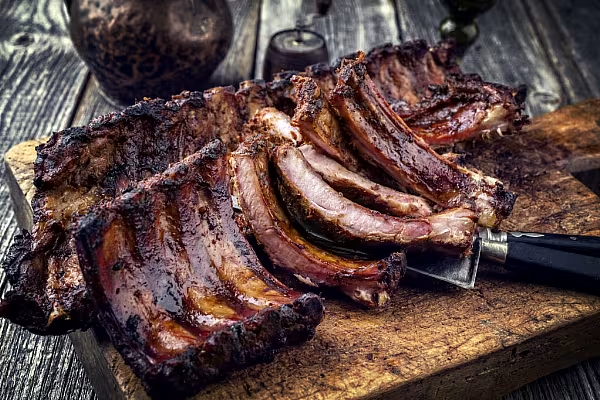Chinese consumption of pork remains subdued and normalisation could take up to six months, said Danish Crown's CEO, who also told Reuters the company would lay off 550 staff in Denmark and Germany and cut capacity at its Essen plant by 40%.
Chinese pork demand is weak despite relaxation of the country's COVID-19 policies as many people continue to avoid restaurants, said Jais Valeur, the head of Europe's biggest pork producer.
"Right now I don't see any signs that Chinese imports are on the rise," Valeur told Reuters in an interview, adding that the Chinese market would probably normalise within six months.
The North Asian country's imports of pork - the most popular type of meat in the country - have halved over the last 18 months due to higher domestic production, low prices, and tepid demand.
Lay Offs
Danish Crown also said it would lay off around 550 staff in Denmark and Germany, with 400 of those cuts from its plant in Essen, Germany, where it is slashing capacity by 40%. Earlier this month, the company said it would shut a plant near Hamburg that employs 200 people.
Danish Crown, which produces nearly 20 million pigs each year, opened a processing plant outside Shanghai in 2019. The plant is currently running at around one-third of capacity, largely unchanged from levels during the lockdown period.
"Eating out is really what is driving consumption in China. But what we see now is that a lot of people are scared and stay away from restaurants," Valeur said.
"There's a huge desire in China to spend and to go out and eat with friends. All this has been suppressed during the lockdowns," he said. "In about six months' time, I think we will see a normalisation in China just as we've seen in Europe."
Pork Output China
Pork output in China, the world's largest producer, rose last year to the highest since 2014, as a rally in prices over the summer encouraged farmers to fatten up pigs more than normal. However, this month, China's agriculture ministry urged farmers to reduce excess pork output.
Slow Chinese demand has a knock-on effect on the European market. The outbreak of African swine fever in some European countries, including Germany, prompted producers in Spain to boost output aimed at the Chinese market.
"All that meat is now flooding the European market, where consumers are now coping with inflation and are worried about the future," Valeur said.
News by Reuters, edited by ESM – your source for the latest supply chain news. Click subscribe to sign up to ESM: European Supermarket Magazine.














